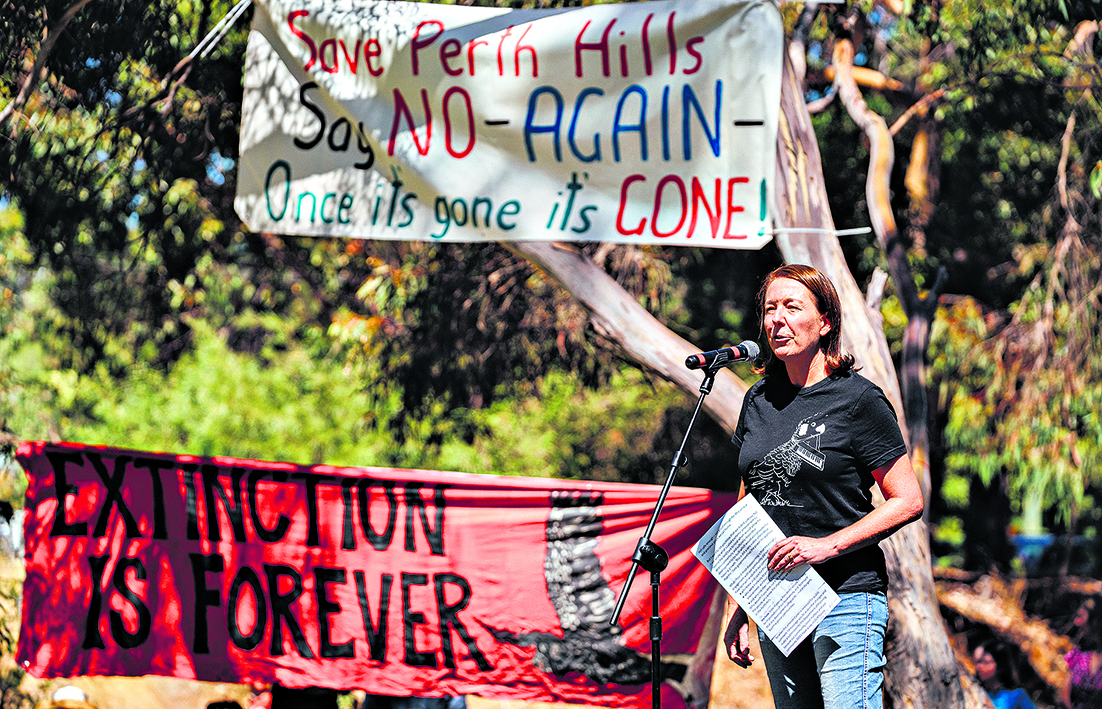
“As part of this process, DPLH will also invite submissions/recommendations from the Shire of Mundaring and other government agencies, including DFES.’’
Satterley’s promotion for the proposed development says concentrating growth in and around townsites has been the preferred means of residential development by both state and local governments for a multitude of reasons, including creating environmental benefits like irrigation of public open spaces using wastewater recycling, rehabilitation of creek lines and balancing clearing of vegetation with bushfire risk management.
But the proposal was not approved by the WAPC in July 2020 and the following month Satterley took the decision to the State Administrative Tribunal (SAT) and since then there have been nine mediation sessions.
Former Save Perth Hills chair Paige McNeil said the North Stoneville plan was rejected by the WAPC because it did not comply with four state planning policies.
“The collective wisdom of our community should’ve been sought, because the people know first-hand the increasing challenges we face in the Perth Hills,” she said.
Ms McNeil said Save Perth HiIls and the Shire of Mundaring had applied to rezone the North Stoneville land back to rural.
“This would allow for an environmentally and culturally respectful development to be built, and the state government has the power to approve this rural rezone.”
On January 24 a spokeswoman for Satterley said there was nothing they could say while they were going through the SAT process.
Australian environmentalist Bob Brown was among the other speakers at the rally, which was held on Sunday.